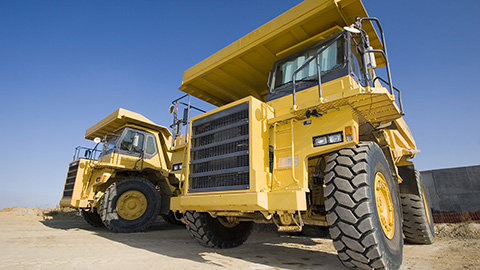Discovering the Advantages of Composites in Building and construction
Discovering the Advantages of Composites in Building and construction
Blog Article
Checking Out the Uses and Advantages of Recycled Composites in Modern Industries
The combinations of recycled products with innovative composite modern technologies offers a promising opportunity for improving sustainability, resilience, and cost-efficiency throughout numerous industries. As sectors seek cutting-edge options to attend to environmental worries and boost operational effectiveness, the consolidation of recycled compounds emerges as an engaging alternative.
Environmental Benefits of Recycled Compounds
The usage of recycled compounds in contemporary markets provides considerable environmental benefits, contributing to the decrease of waste and the conservation of all-natural resources. By integrating recycled composites into producing processes, markets can reduce their reliance on virgin products, consequently minimizing the amount of waste created and the energy needed for extraction and manufacturing. This shift in the direction of making use of recycled composites aids in diverting materials from landfills, alleviating the worry on waste administration systems, and decreasing greenhouse gas discharges associated with typical manufacturing techniques.
Furthermore, using recycled compounds promotes the preservation of natural deposits such as wood, minerals, and water, which are frequently depleted through the removal and processing of raw materials (composites). By prolonging the life-span of products through recycling, markets can help maintain environments and biodiversity by decreasing the demand for new sources. Generally, the fostering of recycled composites in modern industries plays a crucial duty in advertising sustainability and alleviating the environmental influence of production processes
Boosted Sturdiness in Item Production
With a concentrate on durability and effectiveness, including recycled composites into product production processes improves sturdiness and sustainability. By making use of recycled composites, suppliers can develop products that are not only strong yet also immune to damage, making them suitable for long-lasting use in different industries. The mix of various products in recycled composites can often cause boosted toughness and sturdiness contrasted to traditional materials, supplying an economical remedy for producing resilient goods.
Among the key benefits of making use of recycled composites in item manufacturing is the capability to customize the material buildings to fulfill specific resilience requirements. By adjusting the make-up and manufacturing methods, manufacturers can personalize the recycled composites to hold up against rough ecological problems, hefty tons, or regular use without endangering on efficiency. This versatility in layout and production enables for the development of extremely durable products that maintain their honesty in time, decreasing the need for regular replacements and ultimately adding to an extra lasting production process.
Cost-Effectiveness and Financial Benefits
Integrating recycled compounds right into item manufacturing not just boosts resilience and sustainability but also offers substantial cost-effectiveness and economic benefits. Utilizing recycled compounds can result in minimized material expenses as recycled products are usually cheaper than virgin materials. Additionally, recycling composite materials can reduce waste disposal expenditures and decrease the demand for land fill space, adding to general price view it now financial savings for markets.

Development and Design Versatility With Recycled Composites
Making use of recycled composites in modern-day industries offers unequaled possibilities for development and layout versatility. By incorporating recycled materials right into composite production procedures, business can press the borders of traditional design restrictions and explore brand-new possibilities. The versatility of recycled compounds enables the development of complex shapes and structures that might not be possible with conventional materials.
One of the vital benefits of recycled compounds is their capacity to be built into various forms, providing developers the flexibility to experiment with special shapes and dimensions. composites. This flexibility opens up a world of imaginative possibilities, making it possible for the development of light-weight yet sturdy items that satisfy the particular needs of different sectors
In addition, making use of recycled composites advertises lasting methods and sustains the round economic climate by decreasing waste and decreasing the environmental impact of manufacturing processes. This focus on green style remedies aligns with the growing fad towards sustainability in contemporary markets, making recycled composites a beneficial source for ingenious and forward-thinking business.
Applications Across Different Industries
Recycled compounds find varied and impactful applications throughout a wide variety of industries as a result of their special properties and sustainability benefits. In the vehicle industry, these products are significantly utilized for manufacturing resilient and lightweight elements, boosting gas effectiveness and minimizing carbon discharges. The aerospace sector gain from recycled compounds in the manufacturing of aircraft parts, where the products' strength-to-weight ratio is critical for guaranteeing security and efficiency. In construction, these compounds are utilized for developing solid yet environmentally friendly building products, contributing to lasting framework advancement. The sustainable energy industry utilizes recycled compounds in wind turbine blades and solar panels, using their strength and their website resistance to extreme environmental conditions. Additionally, the marine market uses these products for producing boat hulls and components, supplying boosted resilience and rust resistance. The flexibility and sustainability of recycled composites make them valuable across various sectors, driving advancement and ecological stewardship. composites.
Final Thought
To conclude, the utilization of recycled compounds in modern sectors offers significant environmental benefits, enhanced sturdiness in item manufacturing, cost-effectiveness, and financial advantages. Furthermore, making use of recycled compounds permits innovation and style adaptability across numerous markets. Overall, the adoption of recycled compounds provides a functional and sustainable option for satisfying the demands of the sector while likewise lowering ecological influence.

One of the essential advantages of utilizing recycled composites in product production is the capacity to customize the material properties to satisfy particular durability requirements. Utilizing recycled composites can lead to minimized product prices as recycled materials are commonly less pricey than virgin products. The aerospace market benefits from recycled compounds in the production of airplane components, where the products' strength-to-weight ratio is crucial for guaranteeing safety and security and performance.
Report this page